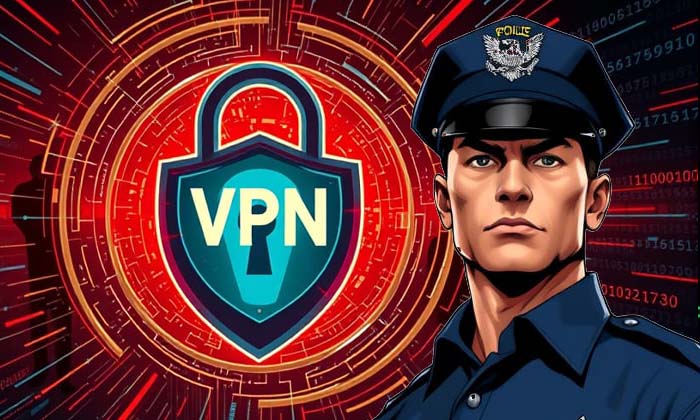
Virtual Private Networks (VPNs) are widely used to enhance online privacy and security. However, their ability to guarantee complete anonymity is often questioned, particularly regarding their traceability by law enforcement.
How can the police trace a VPN?
Generally, Internet Service Providers (ISPs) can detect VPN usage but cannot see the user’s specific activities. However, in investigations of serious crimes, authorities can obtain warrants to access ISP and VPN provider data. If these providers keep activity logs, they may be compelled to provide them, allowing certain online actions to be traced.
What information can the police obtain from a VPN?
The accessible data depends on the VPN provider’s logging policy. Some retain information such as IP addresses, connection timestamps, and data transfer volumes. These elements can help identify a specific user if authorities have access to them.
Can IP addresses be traced?
Yes, IP addresses assigned by VPNs can be traced back to the provider. If the provider keeps logs, it is possible to link an IP address to a specific user. However, if the provider enforces a strict no-logs policy, this traceability becomes much more difficult.
Can real-time traffic be monitored?
Monitoring a VPN user’s real-time traffic is complex due to encryption. Nevertheless, techniques such as traffic analysis or the use of “honeypots” can, in some cases, provide clues about online activities, although these methods require significant resources and do not guarantee conclusive results.
Impact of data retention laws
Regulations vary by country. Some require VPN providers to retain user data for a specified period, making authorities’ work easier. Others have no such requirements, offering stronger privacy protection.
Can VPNs be traced by other entities?
Besides law enforcement, cybercriminals or intelligence agencies may attempt to trace VPN users. However, without access to logs or a security flaw, these attempts are generally unsuccessful, especially if the VPN uses strong encryption.
Are corporate VPNs private?
Corporate VPNs are primarily designed to secure internal communications. Network administrators can monitor employee activity for security or compliance reasons. Therefore, anonymity is not guaranteed in a professional context.
Tips for secure VPN use
- Choose a reputable VPN provider with a strict no-logs policy, such as ProtonVPN or Nord VPN, for example.
- Avoid free VPN services, which are often less secure and may sell user data.
- Use strong encryption protocols and keep software up to date.
- Combine VPN use with other privacy tools, such as the Tor browser, to enhance anonymity.
Conclusion
A VPN can greatly enhance online privacy, but it is not foolproof. Depending on local laws, the technical capabilities of authorities, and the provider’s policy, it is still possible in some cases to trace a user’s activity. Therefore, it is essential to choose a reliable VPN service and not rely solely on this tool to ensure complete anonymity.
